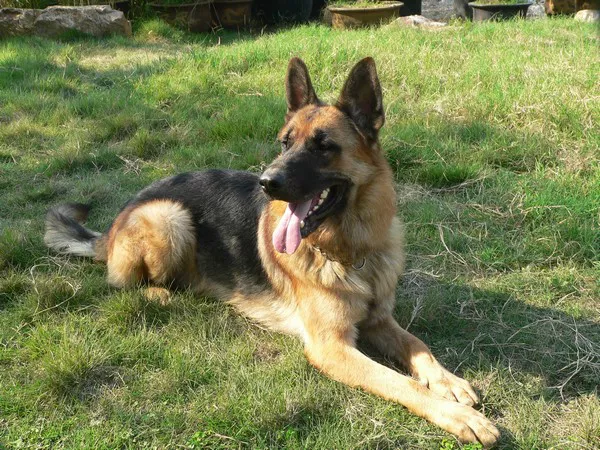The Airedale Terrier, often called the “King of Terriers,” is a breed that stands out in terms of personality, intelligence, and charm. Known for their distinctive appearance—featuring a long, flat back, a noble face, and a dense, wiry coat—Airedales are also recognized for their temperament. But when it comes to behavior, many prospective pet owners wonder: Are Airedale Terriers well behaved?
In this article, we will explore the factors that influence the behavior of Airedale Terriers, the breed’s natural traits, their training needs, and how they typically interact with people and other pets. By the end, you’ll have a clearer understanding of what to expect from an Airedale Terrier in terms of behavior and whether this breed is the right fit for your lifestyle.
A Brief History of the Airedale Terrier
To fully understand an Airedale Terrier’s behavior, it’s important to first consider the breed’s history. The Airedale Terrier originated in the Aire Valley of West Yorkshire, England, around the mid-19th century. Initially bred for hunting and water retrieving, Airedales were often tasked with chasing game, such as otters and waterfowl, as well as serving as excellent ratters and guard dogs. Their intelligence and keen instincts made them highly valued for these purposes.
In time, the breed became popular in many areas of society. Airedales served as police dogs, military dogs, and companions for aristocrats, further shaping their social nature and adaptability. However, despite their varied roles throughout history, they have retained the characteristics of an independent, energetic, and bold dog, which can influence their behavior.
Are Airedale Terriers Naturally Well-Behaved?
Whether or not Airedale Terriers are well-behaved depends largely on what you define as “well-behaved.” Some might consider a dog “well-behaved” if it’s calm, quiet, and obedient at all times, while others may consider a dog well-behaved if it’s energetic, alert, and responsive to commands in social settings.
Airedales are generally known to be:
- Independent: As terriers, Airedales have a strong sense of independence. This can sometimes make them seem stubborn or willful. They may not always respond immediately to commands, especially if they’re distracted or if they have a different agenda. This independence is a characteristic of their hunting background, where they had to think for themselves and make decisions on the fly.
- Alert and Protective: Airedales are natural watchdogs. Their alertness to their surroundings and tendency to bark at unusual noises are behaviors that stem from their history as hunters and protectors. However, this can be interpreted as either a positive or negative trait depending on your living situation. For example, they may not be ideal for people who live in apartments where noise could become an issue.
- Energetic and Playful: Like many terriers, Airedales are highly energetic. If not provided with enough exercise and mental stimulation, they can become bored and may resort to undesirable behaviors such as chewing, digging, or excessive barking.
- Affectionate and Loyal: When properly socialized, Airedales are affectionate and loyal companions. They tend to form strong bonds with their families and can be very loving towards children and other pets. However, like any breed, individual temperaments can vary, and early socialization plays a crucial role in how well they get along with others.
The Role of Training and Socialization
Training plays a significant role in how well Airedale Terriers behave. Due to their independent nature, Airedales require consistent, patient, and firm training. Here’s why training and early socialization are so important for this breed:
1. Early Socialization:
Airedale Terriers, like many other dogs, benefit immensely from early socialization. Socializing an Airedale during puppyhood helps them become comfortable around other dogs, pets, and people. It can also teach them to remain calm in new and stressful situations. If not socialized properly, Airedales might become more reserved or even aggressive toward strangers and other animals.
2. Positive Reinforcement:
Using positive reinforcement techniques—such as praise, treats, or playtime—can help Airedales learn new commands and behaviors. Because they tend to be intelligent, they often catch on to training quickly, especially if the process is made enjoyable. However, they are also known for being independent thinkers, so you may need to get creative with training methods to keep them engaged.
3. Firm but Gentle Guidance:
While Airedales are smart, they also have a streak of stubbornness, making them prone to ignoring commands if they’re not motivated. It’s important to maintain a balance of firmness and patience when training. Overly harsh training methods or punishment can backfire with Airedales, leading to anxiety or distrust. Gentle, consistent training that rewards good behavior is more effective.
4. Crate Training:
Crate training is particularly useful with Airedales. It can provide them with a space to retreat to when they need some downtime, and it can help with house training. Airedales, being energetic and sometimes excitable, benefit from having a calm, secure space to unwind.
5. Ongoing Mental Stimulation:
Airedale Terriers are highly intelligent dogs that require regular mental challenges to stay engaged. Puzzle toys, obedience training, agility training, and interactive games are all great ways to keep them sharp and entertained. Without enough mental stimulation, Airedales can become bored and exhibit problematic behaviors such as excessive barking or destructive chewing.
How to Manage Airedale Terrier Behavior
Airedales are not necessarily difficult dogs to manage, but they do require a higher level of commitment than some other breeds. Below are some tips on managing their behavior:
1. Exercise and Physical Activity:
Airedales are high-energy dogs that need regular exercise to stay happy and well-behaved. Long walks, running, and playtime are essential for preventing pent-up energy. If you don’t provide enough physical activity, your Airedale may engage in destructive behaviors, such as digging or chewing.
2. Avoiding Boredom:
As mentioned earlier, mental stimulation is just as important as physical exercise. A bored Airedale will find ways to entertain itself, and unfortunately, this may include things like chewing furniture or digging in the yard. Engaging in games like fetch, hide-and-seek, or teaching new tricks can keep their minds active and well-balanced.
3. Consistency in Routine:
Airedale Terriers thrive in environments where there is structure and routine. They appreciate predictability, which helps reduce anxiety and unwanted behaviors. Regular feeding times, scheduled walks, and consistent training routines help Airedales feel secure and allow them to know what’s expected of them.
4. Avoiding Aggression:
If your Airedale shows signs of aggression, whether towards other dogs or people, it’s important to address the issue early. Aggression can sometimes stem from fear, territorial instincts, or lack of socialization. Consult a professional dog trainer or behaviorist to help address these behaviors before they become problematic.
5. Dealing with Separation Anxiety:
Some Airedales may develop separation anxiety if left alone for long periods of time. If this is the case, it’s important to gradually get them used to being alone for short periods, always ensuring that they have access to toys or treats to keep them distracted. Crate training can also help prevent anxiety-related destructive behaviors.
Common Behavioral Challenges with Airedale Terriers
Though Airedale Terriers are generally well-behaved when trained and properly cared for, like any breed, they do have their quirks. Here are some common behavioral challenges owners may face:
- Chasing Instincts: Airedales have a strong prey drive and may be prone to chasing small animals like squirrels, rabbits, or even cats. It’s important to keep them on a leash or in a secure, fenced area when outside to prevent them from running off.
- Barking: Airedales are known to be vocal dogs, especially when they sense something unusual. While this makes them great watchdogs, it can also lead to excessive barking, particularly if they are bored or not receiving enough stimulation.
- Stubbornness: Airedales are independent dogs with a mind of their own. This can make them appear stubborn or hard to train at times. It’s important to remain patient and consistent, as well as keep training sessions short and fun.
- Digging: Like many terriers, Airedales may have a tendency to dig. This behavior is often linked to boredom or a desire to find prey. Providing enough mental and physical stimulation can help curb this instinct.
Conclusion
In conclusion, Airedale Terriers can be well-behaved, but they do require consistent training, socialization, and mental stimulation to develop into well-adjusted pets. Their independent nature, intelligence, and energy levels mean that they may not always be the easiest breed to manage, especially for first-time dog owners. However, with the right approach—combining structure, patience, and positive reinforcement—Airedales can be loyal, affectionate companions that bring joy and excitement to your home.
Related Topics:























